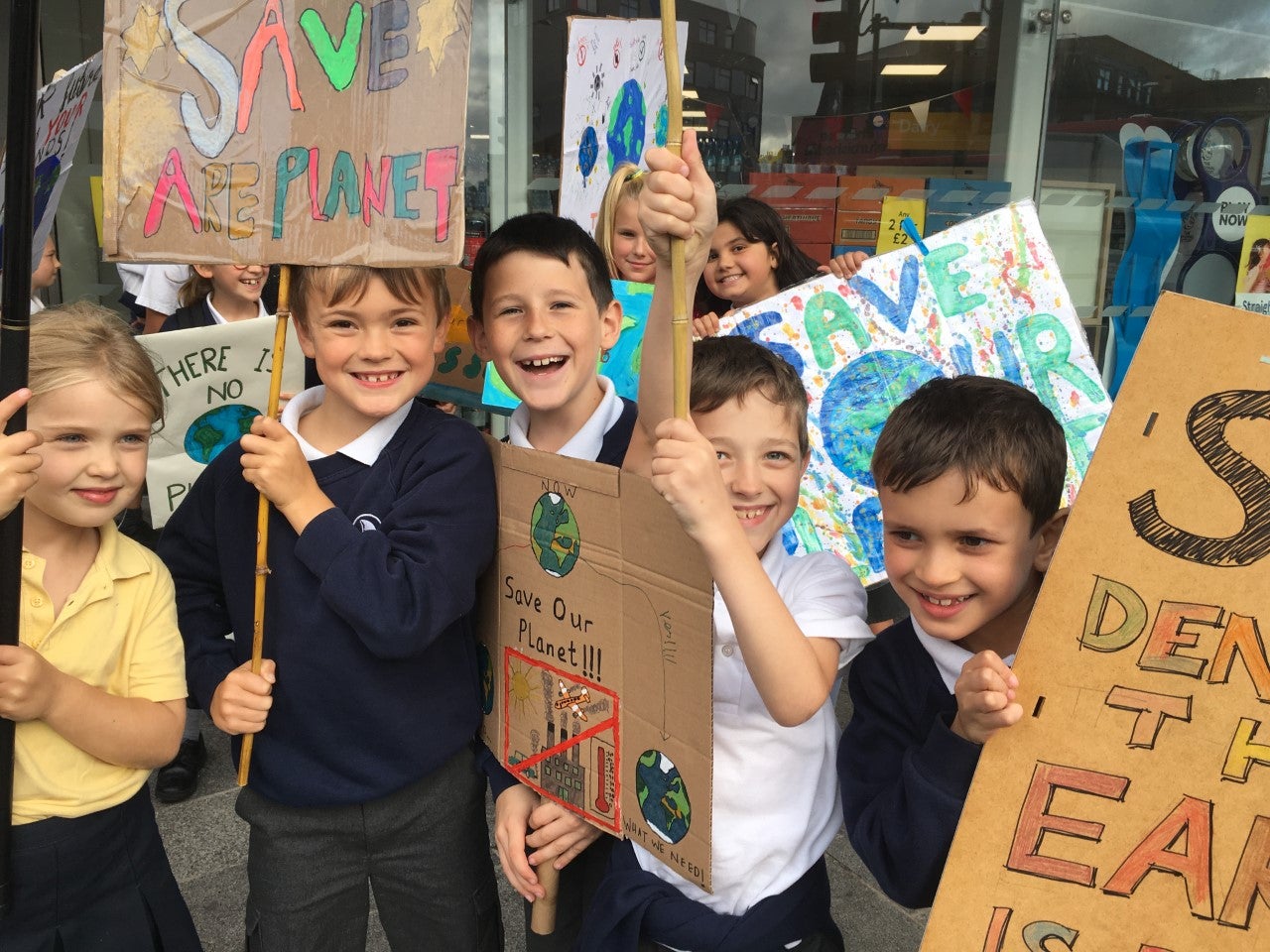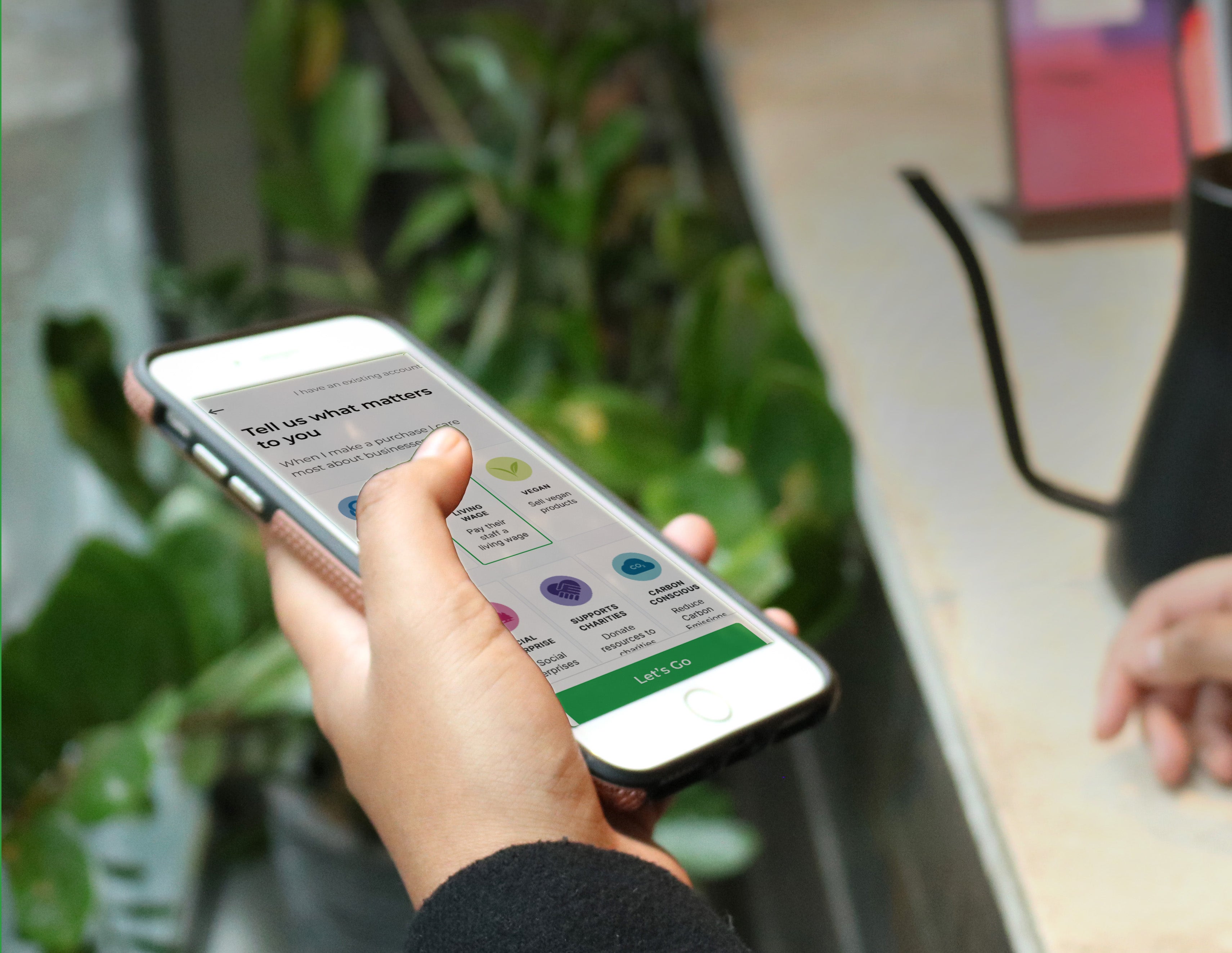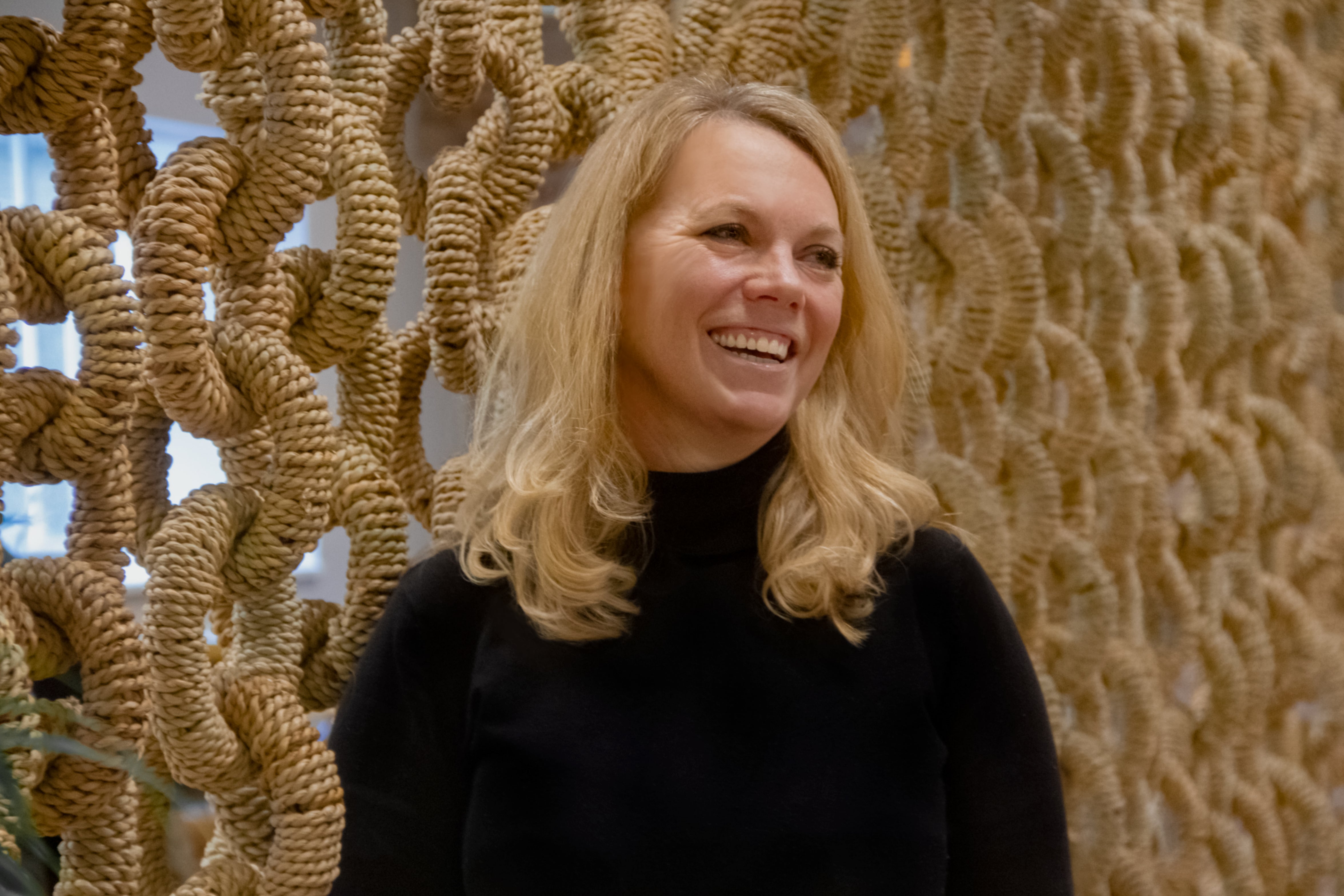Cogo: The free-to-use app tracking your carbon footprint
Heather Martin speaks to Emma Kisby, the CEO of a ‘tech for good’ company and crusader against unconscious consumption


No one can be zero carbon,” says Emma Kisby, UK CEO of Cogo, the “tech for good” company that has devised a free-to-use carbon-tracking app enabling consumers to instantly see the carbon footprint of their spending. “Not unless they go off to a cave and live in the dark and eat berries. Which sounds rather appealing, after two years of homeschooling. But we can all be net zero.”
That is Kisby in a nutshell: self-deprecating and funny, mission-driven but pragmatic, an idealist, but also a realist. Her English father taught history and her Norwegian mother maths, so it was a natural step for Emma to find herself working as a teaching assistant straight out of school, albeit in some remote spot in the Dandenong Ranges, not far from Puffing Billy in the Australian state of Victoria, surrounded by lyre birds. A year was enough though, before she moved back to the UK to study History and German at Bristol, with a spell in Hanover courtesy of the much-loved, much-missed, EU-led Erasmus programme.
With an extensive employment background in marketing – the Darcy Group, Nectar, Sainsbury’s, Virgin – Kisby is well versed in consumer analytics and commercial partnerships. But teaching is in her DNA. She’s patient in explanation, delights in rewarding small achievements, and above all believes the best of us: that we all want to do the right thing and just need a little help along the way.
The Cogo app was developed in consultation with climate expert Mike Berners-Lee to calculate the carbon impact of everyday purchases and “nudge” its users to take real action to become more eco-friendly. “We’re able to correlate every pound you’re spending with the emissions factor of every company you’re spending with to create your own personal carbon footprint,” Kisby explains. The company has its origins in a charity founded by visionary climate economist, Ben Gleisner (who emerged from a stint with the New Zealand Treasury convinced there had to be a faster way of changing the world than in government), and became a business in 2016. In 2019 it was the first London company to be supported by the new Google for Social Good programme. But it was early investor Richard Collier Keywood, now a director, who encouraged Gleisner to take advantage of the UK’s new Open Banking technology, conceived to encourage innovation in the financial industry and empower the consumer. Now the ethical recommendation engine helps users spend with businesses that match their values, for the sake of both people and planet.
Kisby joined Cogo just before Covid, and what was envisaged as a six-month handover was compressed into about three days when Gleisner found himself having to make a hasty return to New Zealand with his family, leaving his newly appointed partner to oversee the May 2020 launch.
Our actions feel very small but when you start chunking them all up, suddenly they feel very impactful
“One of the challenges with the climate crisis is you rarely get immediate feedback. People are very reluctant to take another action if they don’t feel their existing actions are being recognised,” Kisby explains. Which is what Cogo does. “It’s based on principles used in retail around timely cues, with a focus on positive reinforcement. Hey, you’ve just got your energy bill through: do you know you could reduce your carbon footprint by 35 per cent if you switched to 100 per cent renewable? Hey, you committed to eating vegetarian: this month you’ve reduced your emissions by X – thank you, you’re a climate hero.”
“People were looking for a tool to understand their own contribution to the climate crisis. The opportunity to show them the impact of their spending was very powerful.” Kisby cites Veganuary as a beacon of collective encouragement and repeatedly invokes behavioural science principles around social norms: when you know other people are paying their tax on time, you’re more likely to pay your tax on time; when you know everyone in your street is voting, you’re more likely to vote.
“Our actions feel very small, but when you start chunking them all up, suddenly they feel very impactful.” “Cogo” is an abbreviation of “connecting for good”. What I do matters, but what we do matters more.

“We had this really exciting app,” Kisby says, “but we couldn’t get scale.” Which is when she realised that her best bet was partnering with the banks. It was a meeting of minds. Alison Rose, CEO of the NatWest Group, had already declared her ambition to drive the UK towards a low-carbon economy, so Kisby was confident they would be open to collaboration. The partnership was announced just ahead of COP26, with NatWest integrating Cogo’s carbon-tracking feature into its own digital ecosystem and brand identity. Overnight, Cogo was connected to an additional 8 million customers. “Eight million customers who each took a few actions could effectively reduce carbon emissions by a billion tonnes – in simple terms, the equivalent of planting around 17 million trees.”
Cogo is on an open-banking platform, so can be linked to any bank account, but NatWest was soon followed by CommBank, Santander and TSB. The company is now aiming to raise $20m for international expansion, and by 2025 aspires to track £1bn spending per year through the app and prevent or offset 10 million tonnes per year of emissions. “What’s really exciting is that the banks are pushing us to do more.”
They’ve just produced a carbon tracker beta tool created with NatWest specifically for SMEs, launched in February as a pilot scheme for 500 businesses in the manufacturing and transport industries. Growth has been fast, from a handful of employees in early 2020 to 65, incorporating tech and product development gurus, a behavioural science team dreaming up the right psychological nudges, and a data team looking at impact.
It’s clear that Kisby takes satisfaction in a job well done. But equally that she has a passion for the cause. Without being remotely judgemental, she is a crusader against unconscious consumption. It’s not just what you buy, but where you buy it from. The fashion industry accounts for around 10 per cent of human greenhouse gas emissions; renting instead of buying new can cut your fashion footprint by a staggering 73 per cent per pound spent, and choosing pre-loved clothes by 75 per cent.
“A fashion chain may offer a sustainable line, but everything that goes on around a business is where the emissions predominantly come from. What we want people to understand is that every pound you spend has an impact.” Employers have their part to play too: 4 million people working from home in the UK twice a week would save over 3 million tonnes of carbon a year.

Even the local council has a carbon footprint. Cogo encourages users to offset non-discretionary spend such as council tax by working with accredited partner South Pole, which has a portfolio of incremental initiatives to choose from, from solar and wind power to building projects overseas. “So long as people don’t think we can offset our way out of the climate crisis,” Kisby warns.
Kisby mentions Ameenah Begum, a young entrepreneur who creates watercolour paints out of discarded make-up at her Portsmouth studio, Planet Friendly Paint. There’s no connection to Cogo, but Kisby is not immune to a little positive reinforcement on her own account, and the teacher in her is inspired by the ethical example of the young. I tell her how my sons are both vegan and buy new clothes only reluctantly, and how this “collective encouragement” has affected my own outlook and habits. In return, Emma tells me a story about her daughter.
Then aged nine, and fired up by Greta Thunberg, Lily wanted to skip school to join the climate strike. But she was a good girl, and didn’t want to get into trouble. Why don’t you speak to the headmaster? Emma suggested. So she did. The head was an enlightened kind of head – the school has eco captains and the kids measure their food waste – but he didn’t want to get into trouble either. How about you organise something out of school, he said, and I’ll support you? So she did. Emma expected Lily to be joined by half a dozen friends, but around 300 children marched through the streets to Kingston Town Hall. They even made the front page of the Surrey Comet. Mother and daughter were proud of each other. It was a sweet intersection of professional and personal life.
That night Lily said: “We made a difference, didn’t we.” To which her mother replied: “Yes, we did. But we can’t stop there. The job isn’t done.”
It was a drop in the ocean, but with Lily and Ameenah leading the way, it may one day be a cleaner ocean, rather than one choking to death on plastic.




Join our commenting forum
Join thought-provoking conversations, follow other Independent readers and see their replies
Comments